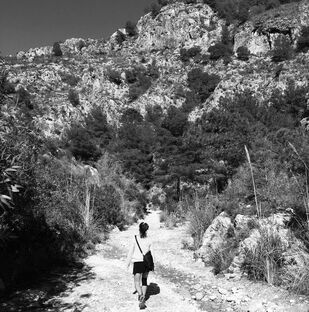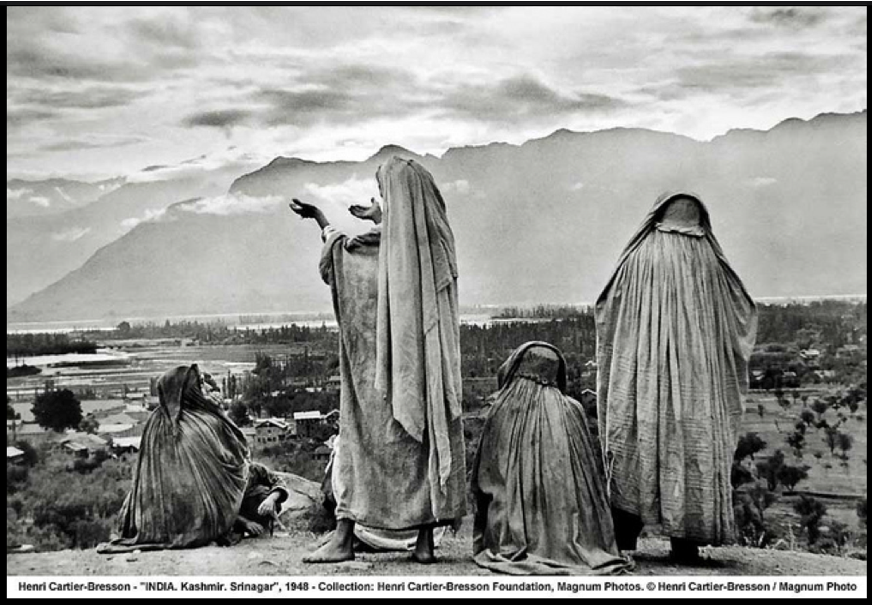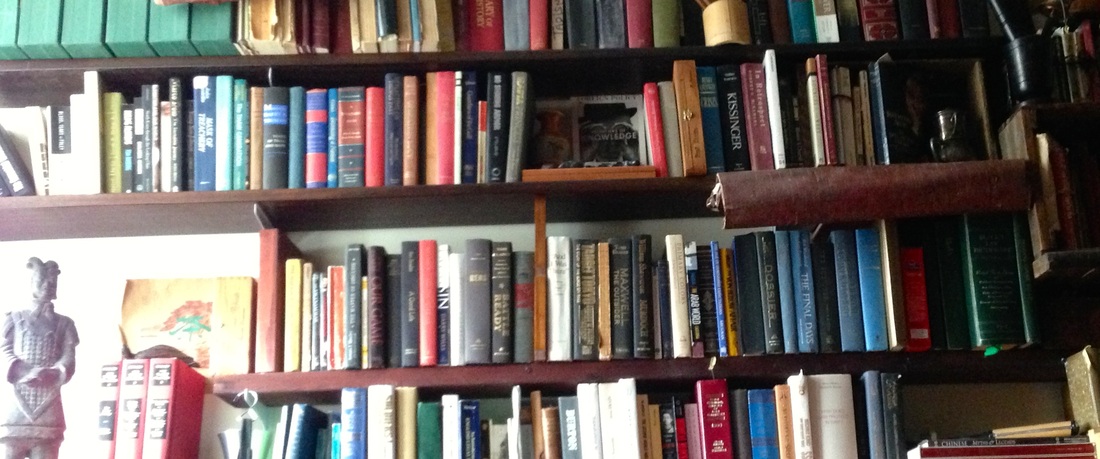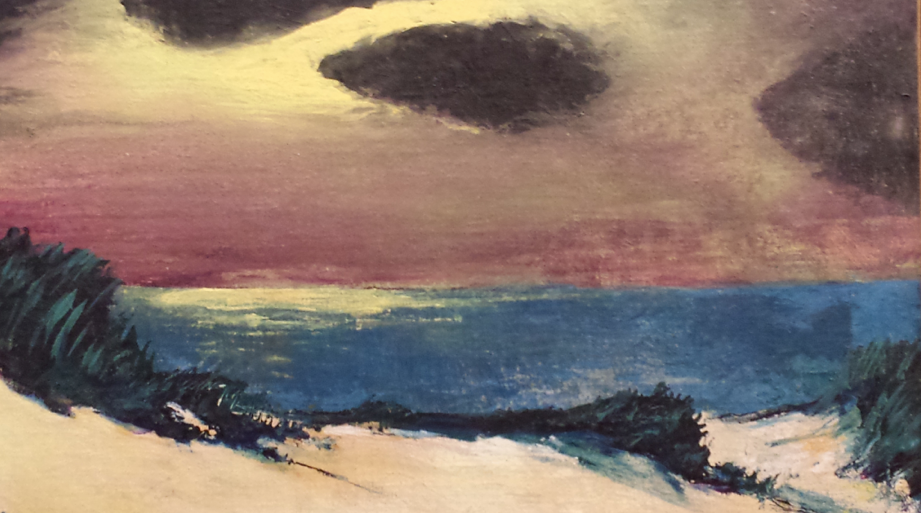|
Relaxing beside the fire last weekend, watching even more snow fall, I wrestled with whether I should call or not call an acquaintance I suspected to be in a deep funk. I was worried about whether my call would be perceived badly. While over-thinking the matter I picked up a magazine - Tricycle, The Buddhist Review, Summer 2013 - and read Dessert of Divination: The Fine Art of Making Fortune Cookies by Noa Jones.
I am no cookie chef, but I am very sensitive to the gut-wrenching process people put themselves through to arrive at the divine truth of what they should do next, so I loved this fine passage: "Unlike gluttony or lust, the desire for prognostication may seem like an innocuous thing, but it can be just as insatiable and crazy-making as any other addiction. The suffering of not knowing what's next is especially acute when love is in the air or evaporating from the air, or when standing at a crossroads, pulled in two directions, a decision pressing, a gaping void ahead." I imagined an image (like in the photograph above) of soul-searchers cloaked in robes, looking up to the heavens, some reaching up with their arms and begging for divine intervention — a sign — about what to do next. I thought to myself when looking at the photograph, 'if only those outstretched arms and seeking eyes would signal to the gods that these despairing people mean business, and an answer must be produced.' I remember my own youthful desperation and then endless search for answers to my many questions of, 'what should I do?' At 21 or 22 I was deciding on whether I should stay in Montreal or move to Toronto. I tried beta versions of the problem solving techniques I discussed in my previous blog, Making decisions. When no answers surfaced, I threatened myself with a form of punishment for someone hooked on movement: 'You are to sit with the feeling of not knowing what to do, and not move until the answer reveals itself to you.' It was summer, so I moved a mattress onto the back porch of the apartment I shared with friends, lay down, and waited for the answer. I figured it should come in by dinnertime. No such luck. After a couple of days, I began to negotiate with the god of decisions: 'I don't need the ultimate truth, the absolute TRUTH, but please give me at least a small truth, a sign!' A day later, I announced I was moving to Toronto, and did so. A year later, I was back in Montreal. A year after that, I was in France. You get the picture. I was searching and seeking the true way, the next best thing, and asking the gods to deliver me wisdom. Of course, it's impossible to have divine understanding of what comes next. You never know. Better to think out your next move as best you can, then act with all your heart. Even at the very best of times there always will be, as Noa Jones wrote, "a gaping void ahead" Be well, Coach Minda
8 Comments
Recently, I worked with a client who was fearless in her ability to reflect and question her assumptions, beliefs and behavior. Her sassy style and dramatic flair moved me out of my safety zone. She invited me to experiment with a lively form of coaching, and take a chance or two with my input. I was spontaneous in return. It was at once fun and rewarding. We had a good time trying to figure out the mysteries of her universe. And we were really successful at breaking through some old thought patterns.
It also was a wake-up call for me, and made me reflect on how both coaches and clients can get stuck in prescribed roles and approaches. In my previous career as an instructional design and training consultant, I analyzed organizational training needs and made recommendations for training programs. Then I developed, managed and implemented the training, and measured results. The nature of the client’s organization and culture influenced the degree of imagination and daring in my recommendations, not to mention the level of effort I would apply in trying to sell them on the “brilliance” of my new ideas. Often, I found companies were conservative and reluctant to take risks. This was understandable, as one doesn’t know if a new approach will work. And the more experimental the approach, the more time it takes to work out the kinks – which can add to costs. So, there was a tendency is to settle for the status quo. And to avoid risks. All the same, this conservative approach produced sound, dependable work. However, on those rare occasions when I had the green light to advance a new idea, or when I was ready to risk presenting something fresh and new, I created some of my best projects. And these innovation-seeking clients were always pleased with the results. I’ve discovered in coaching as well as in consulting the temptation to take on a perennially conservative mindset, and the reluctance to take chances. By that I mean stepping out of the coach’s prescribed role and:
My conclusion? I think we coaches can ask more of ourselves – and more of our clients – when we step beyond the norm. When we do, and unconventional works, the magic of insight and inspiration can far surpass the status quo. If unconventional doesn’t work, everyone survives. And we always have steady, conventional professionalism to rely on. Come to think of it, you can’t really be innovative until you have a professional handle on the tried and true. Unconventionally yours, Coach Minda Some decisions are really complicated and we, suffer immeasurably to figure it out.
Who hasn't had angst about whether he/she should?
When we want to decide and we aren't sure of what is the best decision, uncertainty kicks in and starts our thoughts swirling around and around in our head. How do we know if and when it's okay to quit or to walk away? Or to invite something new into our lives? We ask ourselves a hundred variations on these kinds of questions:
We try different methods to problem solve. The first line of defence often goes to making imaginary columns of pros and cons, advantages and disadvantages or risks and benefits. When the answer still doesn't conclusively reveal itself, or we are still reluctant to take action, we can ask what does our heart or intuition or body have to say. Other tried and true ways to find the "best" decision are looking for signs in our dreams. Or meditate. Or, go for long walks communing with nature. Or, ask all our friends for their thoughts on what we should do. I like to think that as we gain more experience with difficult decisions, we shift our perspective from judging them as good or bad, right or wrong or this or that and instead, recognize the paradox of duality. I think we might find a more creative approach and less painful one if we can see the worth of all options. We don't need to be strictly for one side or against the other. If we can respectfully value the different voices clamoring for a part in the decision (our attention), we can respond with a heart and mind more at ease and with a fuller and more mature insight. This process of making a decision and the result of our decision, I feel leaves us less conflicted and more mentally calm. I think too, this approach leaves us more resilient if our decision doesn’t work out according to our expectations. I'd like to hear your stories or thoughts on making decisions...when both sides seem strongly compelling. In duality, Coach Minda |
My family, relationships, movement, nature, flexibility of mind, exploration of alternative perspectives & openness are central to my life.Archives
December 2021
|
Private and confidential
|
Connect with me
|





